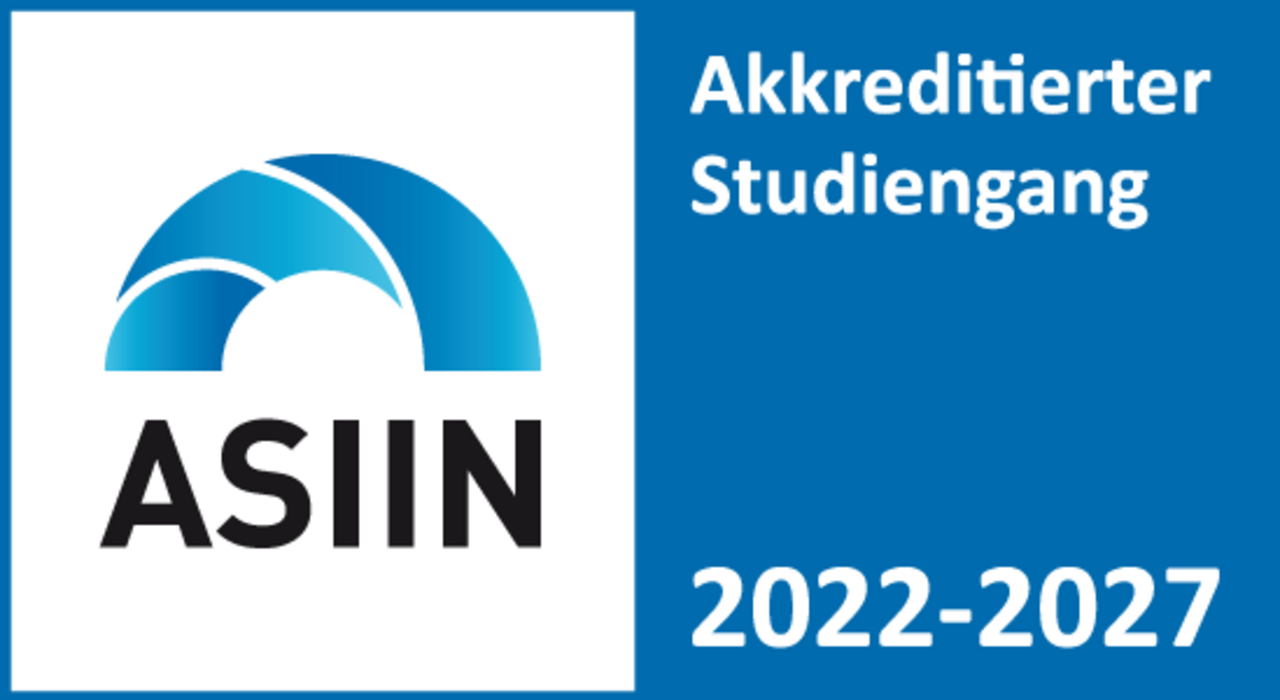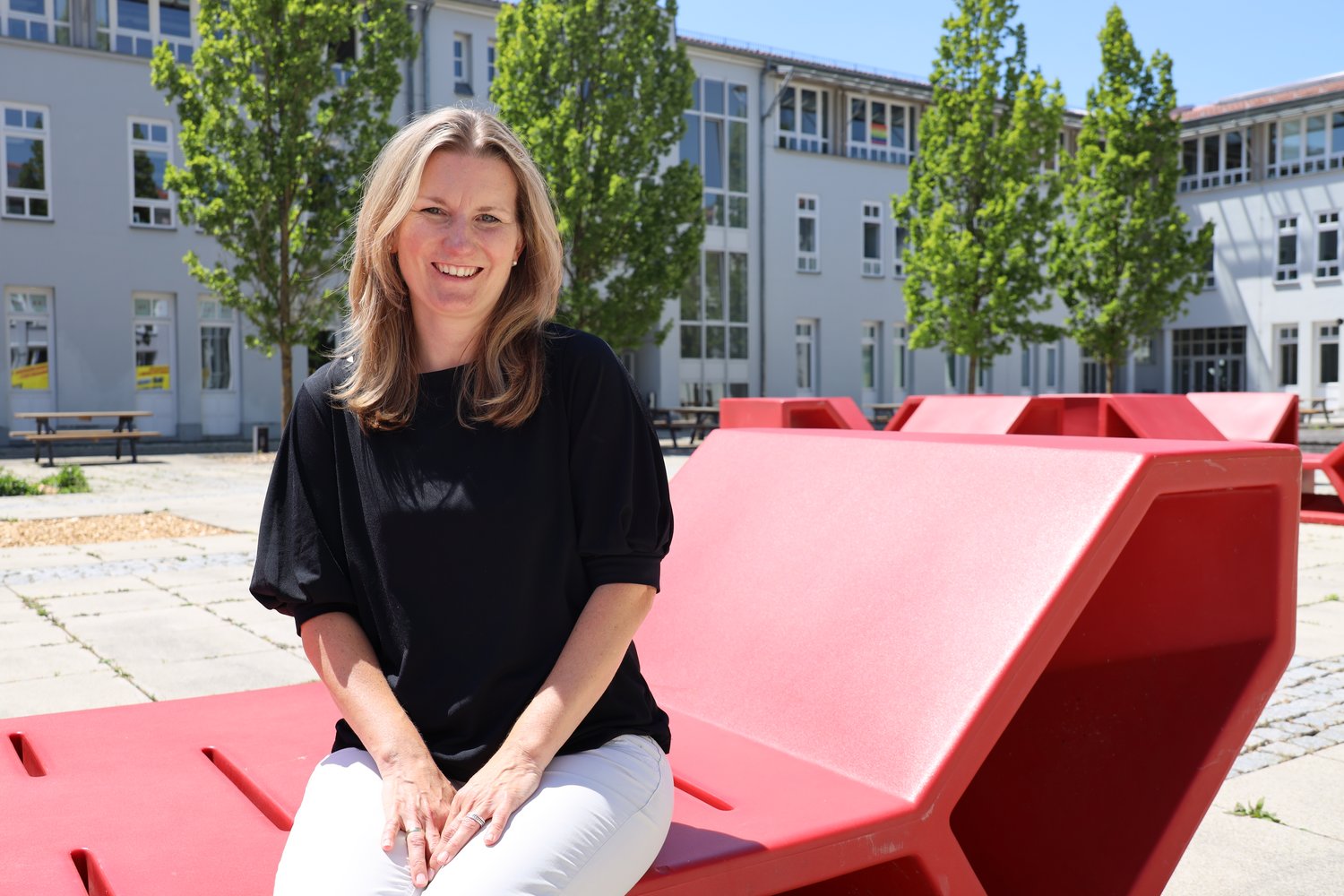

Accredited degree program
Process management and resource efficiency
Master of Business Administration and Engineering
The Master's degree programme in Process Management and Resource Efficiency at Landshut University of Applied Sciences offers a part-time qualification for sustainable value creation processes with a focus on reducing waste and increasing resource efficiency.
| Start | Winter semester |
|---|---|
| Admission Criteria | Open admission (no numerus clausus) |
| Application period | 15.04.2026 - 15.07.2026 |
| Study format | Extra-occupational / further education |
| Study cost | 19.975€ in 5 Raten |
| Normal duration | 5 Semester |
| Language | German |
| ECTS | 90 |
| Accredited degree program | |
 | |
Programme content
The Master's in Process Management and Resource Efficiency is a degree programme that provides you with comprehensive knowledge and skills to optimise processes in industry, save resources and promote innovation. You will learn how to manage projects effectively and efficiently, with a particular focus on agile methods, risk management and project controlling. You will acquire knowledge about energy efficiency in industry, energy management systems, energy and environmental technology, as well as material flow management and waste management. You will deal with measurement technology and measurement practice in order to record and analyse resource consumption. You will deepen your skills in the area of lean management, both in production and in administration. You will learn how to avoid waste, optimise processes and create value.
You will familiarise yourself with quality management and the Six Sigma approach in order to improve process quality and reduce errors. You will take part in a business simulation game to practically apply and consolidate what you have learnt. You will learn how to promote innovation, develop leadership skills, manage change, conduct value analyses and carry out production controlling. You will deal with supply chain management and international procurement in order to optimise logistics processes and increase global competitiveness. At the end of the programme, you will write a Master's thesis on a topic of your choice in the field of process management and resource efficiency, which you will work on and present in a scientifically sound manner.

Study programme
The Process Management and Resource Efficiency degree programme has a standard duration of five semesters. In the first three semesters, you will take part in seminars from the module areas of business administration, technology, practice and integration. In the fourth and fifth semesters, you will write your Master's thesis, in which you will work intensively and in detail on answering a scientific question related to your degree programme. Towards the end of the Master's thesis period, participation in a Master's seminar is compulsory, in which you present your findings and discuss them with your programme director and fellow students.
Advanced project management topics: Here we look at technical methods, for example for project monitoring and risk management, as well as the human aspects of projects such as team building and leading project teams.
Energy efficiency in industry: In this module, you will learn the technical principles and methods for analysing and optimising energy consumption in industrial processes, taking into account both technical and economic aspects.
Measurement technology with practical measurement: This module provides theoretical and practical knowledge of measuring mechanical variables with suitable sensors, amplifier circuits and measurement signal processing. Various measurement tasks are carried out in the practical course in order to be able to apply what has been learnt in theory in practice.
Lean Factory Design and Lean Production: This module shows how a factory can be organised according to lean criteria and how process-oriented structures can be created. The principles and methods of lean management are presented and applied using case studies.
Business simulation: This course offers the opportunity to apply the concepts and methods of process management learnt in a realistic simulation. You take over the management of a virtual company and have to make strategic and operational decisions.
Quality with Six Sigma: This module explains the Six Sigma method for process improvement and quality enhancement. You will learn the statistical principles, the tools and the procedure according to the DMAIC cycle.
Energy management, energy and environmental technology: This module covers the recording, analysis and optimisation of energy consumption in various areas of application. The legal and ecological framework conditions as well as the possibilities of energy generation and marketing are also addressed. You will learn about the technical principles and applications of renewable energies, such as wind, solar and biomass energy, while also looking at the environmental impact, storage and integration into the energy system.
Innovation management and leadership skills: This module deals with the challenges and success factors of innovation processes in organisations and the role of managers as innovation leaders.
Change management, value analysis and production controlling: This module deals with the planning, management and implementation of change processes in organisations. The psychological, organisational and communicative aspects of change management are examined and various models and methods are presented. You will learn about methods and tools for analysing and optimising products and processes, taking costs, benefits and quality into account.
Lean administration and business process management: This module shows how the principles and methods of lean management can be applied to administrative and supporting processes.
Material flow management and waste management: This module deals with the analysis, evaluation and optimisation of material flows in industrial and municipal systems, taking into account legal and ecological principles.
Supply Chain Management and International Procurement: Here you will acquire the relevant supply chain management tools for planning, controlling and optimising value chains - particularly taking into account the challenges of international procurement.

Master thesis
You will complete your studies with a Master's thesis, in which you will work intensively on a scientific issue related to your degree programme over several months. You will be closely supervised by professors at Landshut University of Applied Sciences. It is possible and recommended that you establish a link to your professional practice in your Master's thesis.

